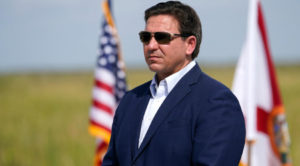In a major victory for conservatives, the Supreme Court has decisively curtailed the Environmental Protection Agency’s (EPA) regulatory authority over water bodies. The court’s ruling, handed down on Thursday, emphasized that the EPA’s jurisdiction under the 1972 Clean Water Act should only extend to wetlands that have an obvious connection to larger regulated water bodies.
The case that prompted this ruling involved Michael and Chantell Sackett, an Idaho couple who faced restrictions on building their home due to the EPA’s designation of their land as a protected wetland. The EPA argued that the presence of nearby water sources, including a ditch that fed into a creek connected to Priest Lake, justified their classification.
However, Justice Samuel Alito, writing for the court, emphasized that a protected wetland must have a “continuous surface connection” to a larger water body. The court made it clear that an underground connection without an apparent surface connection does not grant regulatory power to the EPA.
By overturning a previous ruling that favored the EPA, the Supreme Court has clarified the definition of “waters of the United States” under the Clean Water Act. The lack of a clear definition had allowed the EPA considerable flexibility in interpreting its regulatory authority.
Justice Elena Kagan, typically considered one of the court’s liberal justices, concurred with the judgment but expressed concerns about the court’s involvement in environmental policy decision-making, arguing that it encroached on the role of other branches of government.
This ruling has significant implications beyond the Sacketts’ case. It provides relief to landowners who have faced government penalties for alleged violations of wetland regulations. For instance, in a separate incident, California Representative John Duarte was fined $1.1 million for plowing land the government deemed as wetlands near the Sacramento River. Duarte argued that such penalties infringe on property rights and jeopardize family businesses and employment opportunities.
Conservatives view this Supreme Court decision as an important step towards reining in what they perceive as excessive government control over private property and a victory for individual liberties and economic freedom.





